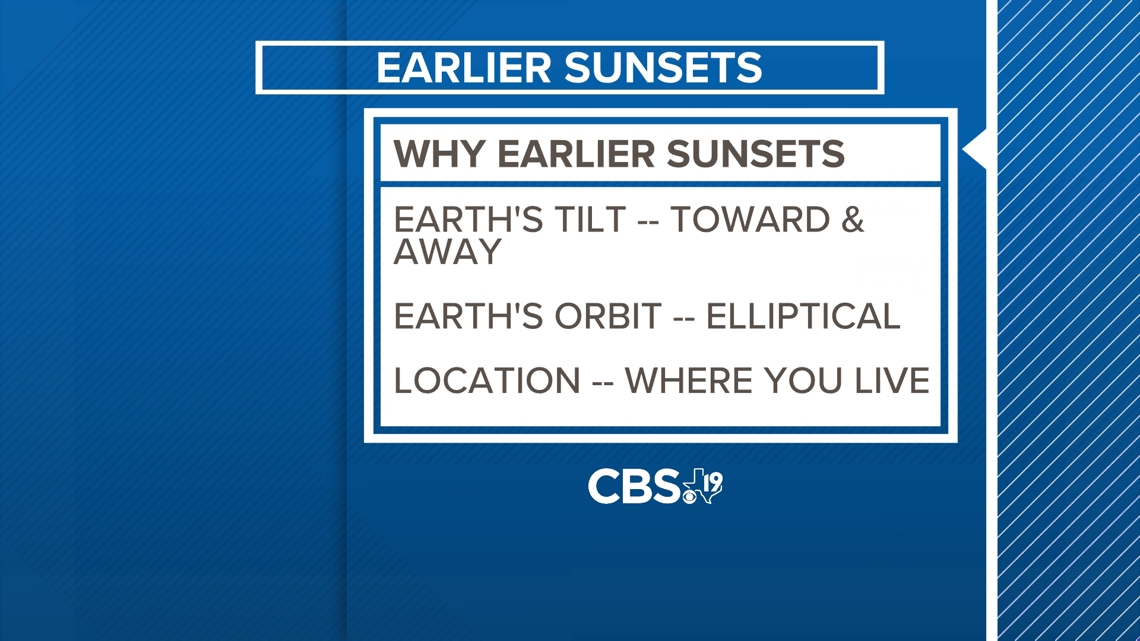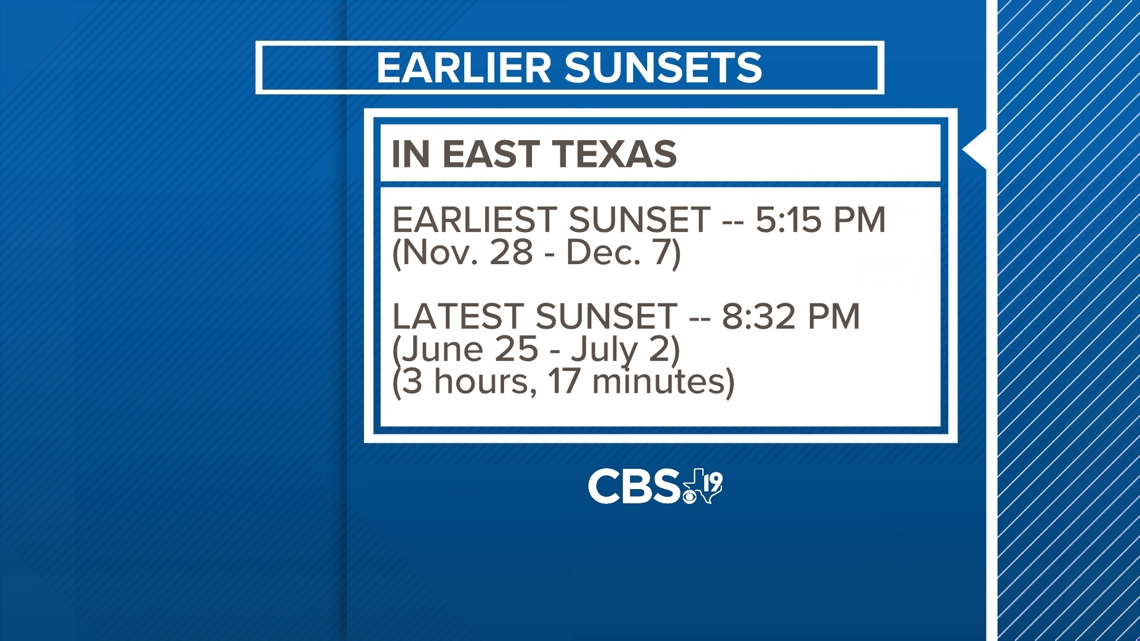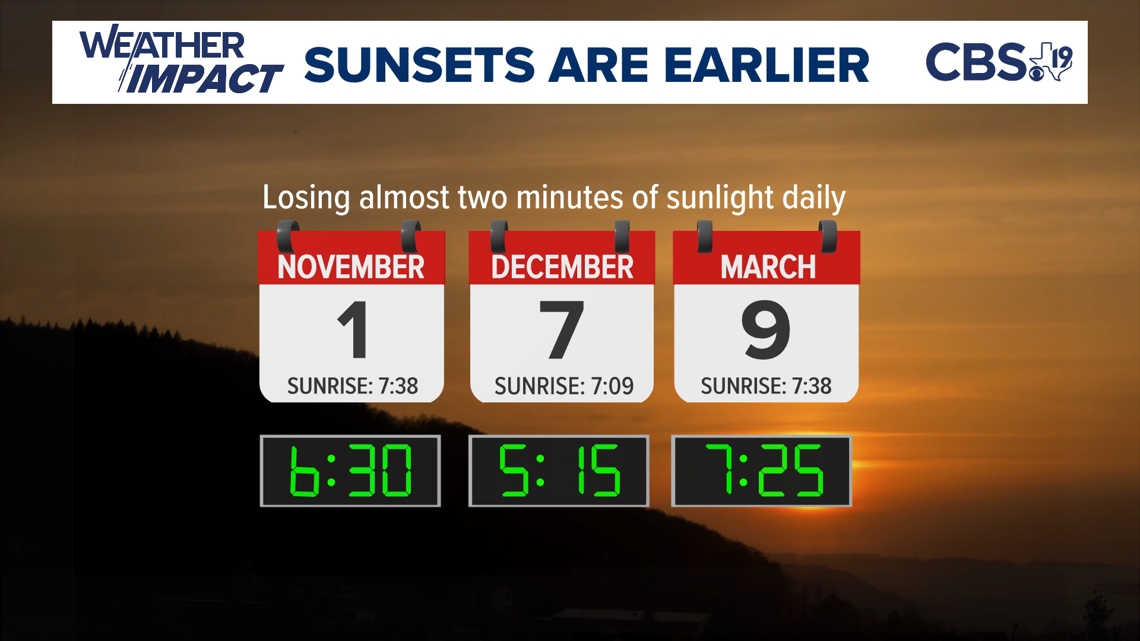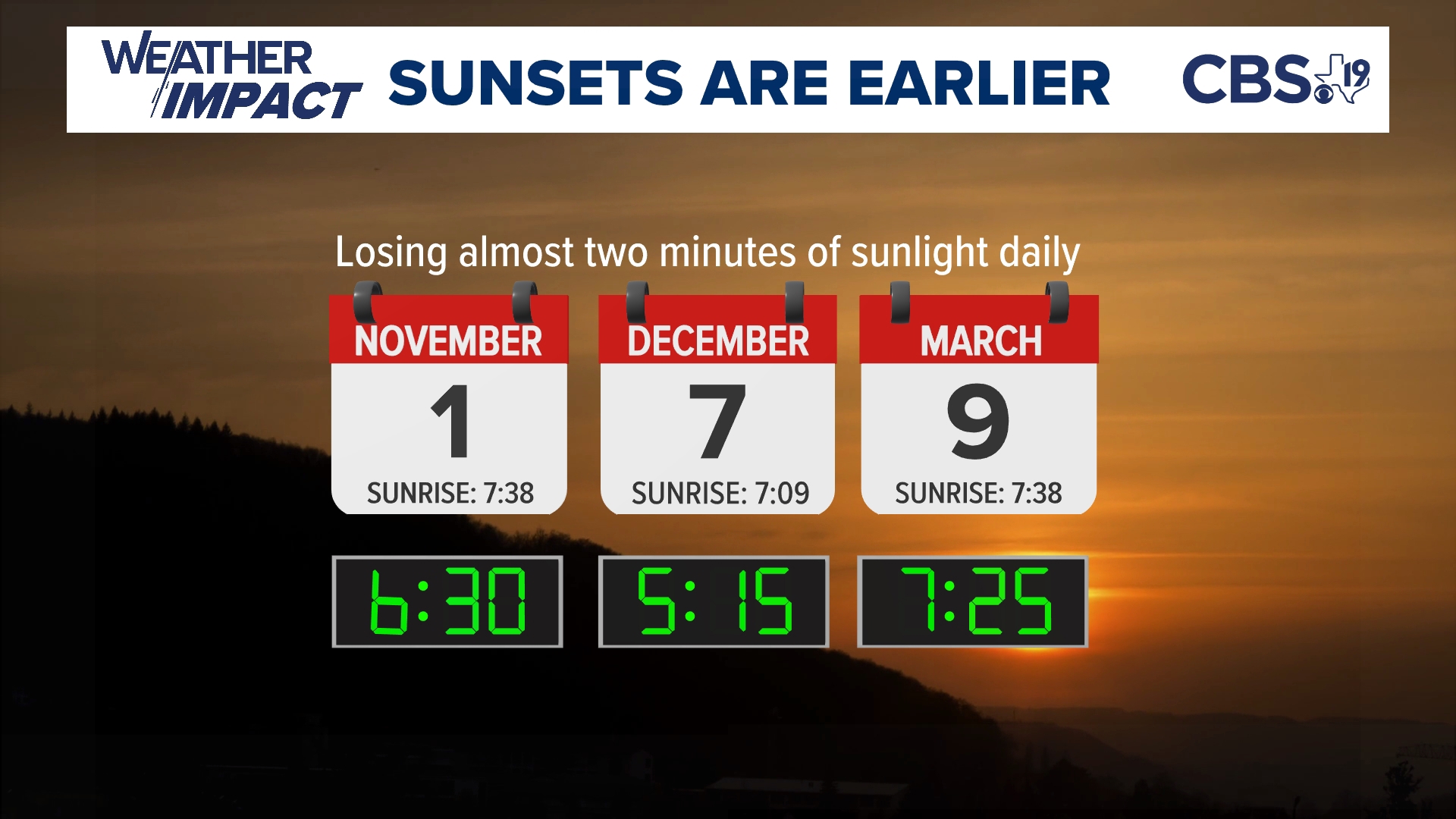TYLER, Texas — The sun is setting earlier. It's nothing to be alarmed about. It happens every year at this time.
But there is science behind why the sun sets earlier in the fall and winter and later in the spring and summer.
One aspect has to do with your location. The length of daylight where you live is tied to the Earth's tilt and rotation. Remember the Earth is tilted on an axis at 23.5 degrees and it rotates as it orbits around the sun. It takes 365 days, or one year, to make a complete trip around the sun.
During summer, the Earth is tilted toward the sun and during the winter it's tilted away. That means there is more direct sunlight on the northern hemisphere in summer and less in the winter. Where you live will impact the amount of daylight you experience in summer and winter, and it will affect the time difference between your earliest sunset and your latest sunset during the year.


The sun angle explains why we should be cooler in winter and hotter in summer, but it also helps to explain the length of daylight.
For instance in Hawaii, the earliest sunset and the latest sunset during the entire year are about two hours apart. But here in East Texas, our earliest sunset occurs from late November to early December, and our latest sunset happens from late June to early July. December's earliest sunsets are at 5:15 p.m., while summer's latest sunset is 8:32 p.m. That's a three hour and 17 minute difference. It's greater the farther north you travel.


As we head deeper into fall, and for the next couple of weeks, we will lose about two minutes of sunlight every day -- that includes later sunrises and earlier sunsets. Of course, the sun will set an hour earlier starting November 3. That's when Daylight Saving Time ends. The amount of daylight will continue to shorten all the way until the winter solstice.


Starting December 22, we'll start the long climb toward long summer days and shorter summer nights and then we'll do it all over again next year.
So yes, the sun is setting earlier, but it happens every year.

